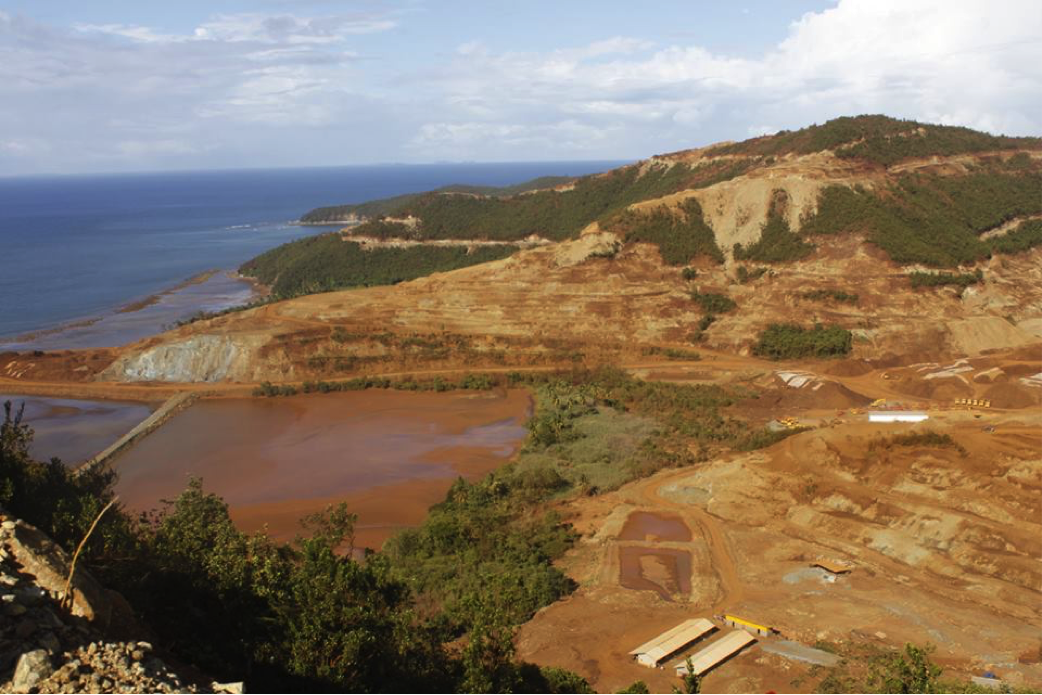Support the Mines closures, end the plunder, assist the displaced workers – CTUHR

The labour rights organization, Center for Trade Union and Human Rights (CTUHR) commends the decisiveness of Department of Environment and Natural Resources (DENR) Secretary Gina Lopez to suspend and cancel contracts of large scale and extractive mining firms in the country. In a country where multinational corporations favourably aided by foreign investment laws lord over the plunder of natural resources to the detriment of already marginalized communities, Secretary Lopez’ resolve is a breath of fresh air.
Mining firms, business and even other government officials claim that closures will affect the jobs and livelihoods of many and have adverse impact on the country’s economy. This is nothing new. The Mining Act of 1995 was passed and vigorously implemented until recently under the claims that the industry will spur employment and growth.
The proponents are wrong, and the DENR Secretary is right, when she aptly puts that where large scale mining exists, the poverty is stark. CARAGA (Region XIII), touted as country’s mining capital (26 mining firms) always places as one of the country’s poorest region, where 35.6% of its population are poor. Agusan del Sur, one of the region’s provinces and hosts to two big mining companies is the poorest with 39% of its people living below poverty threshold.
Mining spurs jobless growth. Mines and Geosciences Bureau noted that the mining and quarrying industry generated only 219,000 jobs which is 0.6% of national employment in 2015, a figure which did not change since 2009. These jobs are low-paying, unsafe, precarious, contractual and unstable, with workers paid only an average wage of P331.78/day. Contractual workers are paid lesser. Attempts to organize unions are met force and thus only a small number of trade unions able to persist. The small number of jobs created is not surprising given that nickel mines, the largest in the country thrives in strip mining, extraction of ores from the bowels of the earth that require only a small number of machine operators and sweepers such as those in Caraga region.
So called mining industry in the country is extractive in nature. Not only it destroys the environment, pushes climate change but also displaces farmers and indigenous communities, often with brute force. It’s contribution to government coffers is negligible compared with the earnings and profits that co
mpanies amassed from their operations in the country. The Philippines is the 5th most mineralized country in the world and the world’s biggest producer of nickel. The National Economic and Development Authority (NEDA) however, estimates that from 2000 to 2015, the contribution of the Mining and Quarrying Industry is only 0,6% employment, 0.7% of the GDP and 5.6% of total exports. In 2014, the industry earned a total of Php 138.6 billion in production value. Eighty two percent (82%) of industry profits are repatriated to their parent companies in their home countries, leaving only the irreversible damage to the environment in the Philippines.
Cancellation of contracts will provide relief particularly to indigenous people’s communities. Over half of the lands being mined are ancestral domains and have driven away indigenous peoples from their source of livelihood. Military is deployed to provide security to mining operations resulting to numerous human rights violations. In fact, in less than a year of the Duterte administration, 12 environment activists and advocates had been extrajudically killed.
The Philippines does not need extractive large-scale mining that heavily damage the environment, poisoned agricultural fields, pollute the waters and silted the rivers and seas. Fishermen in Surigao del Sur complained that they have to brave strong waves of Pacific Ocean to fish, as fish disappeared when more than a kilometer siltation characterized spread Surigao seas. Communities had also been exposed to severe flooding and land/mudslides as mountains are bulldozed and reduced to plains.
CTUHR also calls the the government agencies like DENR, DSWD, DOLE and other concerned agencies to extend all possible support to the workers who will be displaced by these changes. Workers and their families who will be negatively affected by the closures or contracts cancellation, must be prioritized in any rehabilitation projects that DENR for instance will initiate and develop. At the same time, we call on the pull out of all government military forces to ensure that communities are given freedom to nurture the land taken from them to effect mining explorations, so that food production and livelihood can go back to life.
CTUHR thus reiterates its support for policies departing from foreign dominated extractive large scale mining industry, to liberate our natural resources from continual plunder, to preserve whatever is remaining in watersheds and to save thousands of lives from impacts of disasters. With the threat of chamber of mines and big businesses of economic difficulties opposing contracts cancellation, it becomes more compelling that this country pursues economic policies not beholden to foreign investments, policies and programs possible only in national industrialization.
This only makes the resumption of peace talks not just urgent, but imperative so that both the Government and the National Democratic Front panels can tackle the Comprehensive Agreement on Social and Economic Reforms (CASER), that can hopefully lessen the people and country’s vulnerabilities to foreign investment driven economic model.###
